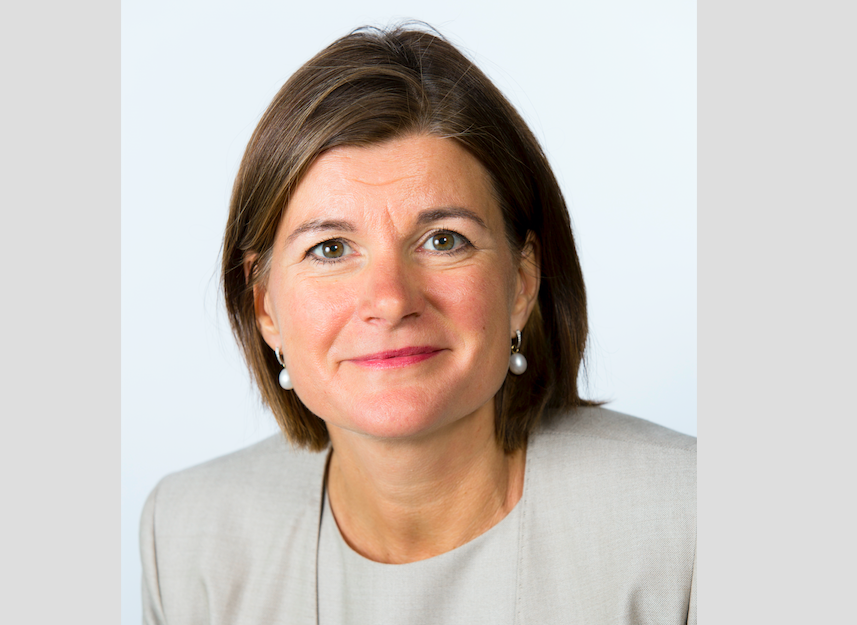Global lockdowns have proved a major catalyst for speeding up the digital revolution, opening up new opportunities in life and in investment.
- Focus on digital services: Our digital themed strategy invests in data-driven, web-based companies which provide interactive services through intelligent algorithms. These companies are the most disruptive and innovative digital businesses that are helping to develop faster and cheaper solutions for businesses and consumers globally, offering a better basis for decision making
- Bottom-up, high conviction approach: Our investment approach centres on pure stock picking, with no benchmark constraints.
- Expert insight: Together, our investment team have more than 60 years of experience. An Advisory Board of external experts provides guidance on industry developments and long-term prospects.
A morning yoga lesson, eight hours at the desk (with a break for lunchtime shopping), then a catch-up with friends over cocktails in the evening. Until quite recently, this normal working day would have unfolded over several different locations across a town or city. Now, in the age of the coronavirus, such activities are taking place online. And it’s likely that these new digital habits will outlast the pandemic.
Indeed, whatever the vantage point, it’s clear we are living through an unprecedented expansion of our digital world. The experience has generated a thirst for even more and better tech – offering attractive opportunities for businesses who can deliver it.
During the lockdown, business growth has been phenomenal among providers of TV services, online video games, e-shopping, social networks, e-health, online education and more.
Netflix secured 16 million new accounts in the first quarter of 2020 – nearly double the number of the previous three months. China’s Tencent, meanwhile, saw a 31 per cent year-on-year jump in online game revenues as customers sought escapism in “Honor of Kings” and “Peacekeeper Elite”. Italians increased the time they spent on Facebook’s apps by 70 per cent.
As lockdowns are eased across the world, it would be natural to expect that growth fade over time. But the fundamentals paint a different picture. After all, so far only 59 per cent of the world’s population has access to the Internet. And as the so-called “Generation Hashtag” – the digital native group born between 1991 and 2005 – grows up and increases its economic power, demand for digital will grow. This demographic represents about 34 per cent of the total population today.

The rollout of 5G networks will provide an added boost. Already making inroads in the US, China, Korean and other developed markets, 5G has the power to transmit data much faster than current phone networks, handle much higher volumes of information, and require much less battery power. Because the digital demands of the lockdown have put heavy pressure on existing capacity, it seems likely that the rollout of 5G will now proceed more rapidly. This, in turn, will fuel the expansion of the Internet of Things, opening up an almost endless set of digital possibilities.
Around the home, for example, this could mean tomato plants that can ask for water, roofs that warn of weaknesses after extreme weather, jackets that keep parents updated on a child’s location, trash cans that ask to be emptied, and milk cartons that point out expiration dates. Moving around town, that could mean having a heads-up on open parking spaces, second-to-second data on surrounding traffic for driverless cars, local air-quality warnings, and much more.
Better connectivity will boost tech growth on a number of fronts. Three in particular stand out. All three had already been on the rise, but as a result of the pandemic, have now massively broadened their customer and client base. Now that more people have experienced what is possible, we expect strong momentum to continue.
To begin with, there’s e-commerce. The lockdown prompted millions of people to embrace online shopping for groceries and other goods, and we expect that many of them will have been won over by the convenience and competitive pricing, at least for some of their purchases. PayPal signed up an average of 250,000 new accounts per day in April, according to a recent trading update.
Software as a service (SaaS) is another area destined for strong growth. SaaS encompasses the technology that powers working from home platforms, online education, cloud storage and teleconferencing. Even when the lockdowns are fully lifted, we expect that both businesses and employees will embrace more flexible working practices than pre-pandemic. Education will change too – Cambridge University has already said that lectures will remain online until at least summer 2021.
Digital life is another key area. After work comes play, and the lockdown has shown how much of our leisure activities and socialising can be done with the help of digital. Here, meal-kit/food deliveries, streaming video services, and online games could be among the biggest beneficiaries. E-health is also booming – in the US alone, some 900 million patient visits will have been conducted by video this year – up 64 per cent on 2019, according to health research group Frost and Sullivan.
While the lockdowns have been temporary, they have shown just how much digital progress can be achieved and how quickly. And the further we move down the road of digitisation, the more data we have to improve the experience and the process. Artificial intelligence will become more and more part of our everyday life with digital services based on its ultra-sophisticated algorithms.
Opinion by Sylvie Séjournet, Senior Investment Manager at Pictet Asset Management.
Please click here for more information on our thematic equity strategies.
This article was first published in FT Adviser.
Information, opinions and estimates contained in this document reflect a judgment at the original date of publication and are subject to risks and uncertainties that could cause actual results to differ materially from those presented herein.
Important notes
This material is for distribution to professional investors only. However it is not intended for distribution to any person or entity who is a citizen or resident of any locality, state, country or other jurisdiction where such distribution, publication, or use would be contrary to law or regulation. Information used in the preparation of this document is based upon sources believed to be reliable, but no representation or warranty is given as to the accuracy or completeness of those sources. Any opinion, estimate or forecast may be changed at any time without prior warning. Investors should read the prospectus or offering memorandum before investing in any Pictet managed funds. Tax treatment depends on the individual circumstances of each investor and may be subject to change in the future. Past performance is not a guide to future performance. The value of investments and the income from them can fall as well as rise and is not guaranteed. You may not get back the amount originally invested.
This document has been issued in Switzerland by Pictet Asset Management SA and in the rest of the world by Pictet Asset Management Limited, which is authorised and regulated by the Financial Conduct Authority, and may not be reproduced or distributed, either in part or in full, without their prior authorisation.
For US investors, Shares sold in the United States or to US Persons will only be sold in private placements to accredited investors pursuant to exemptions from SEC registration under the Section 4(2) and Regulation D private placement exemptions under the 1933 Act and qualified clients as defined under the 1940 Act. The Shares of the Pictet funds have not been registered under the 1933 Act and may not, except in transactions which do not violate United States securities laws, be directly or indirectly offered or sold in the United States or to any US Person. The Management Fund Companies of the Pictet Group will not be registered under the 1940 Act.
Pictet Asset Management Inc. (Pictet AM Inc) is responsible for effecting solicitation in North America to promote the portfolio management services of Pictet Asset Management Limited (Pictet AM Ltd) and Pictet Asset Management SA (Pictet AM SA).
In the USA, Pictet AM Inc. is registered as an SEC Investment Adviser and its activities are conducted in full compliance with the SEC rules applicable to the marketing of affiliate entities as prescribed in the Adviser Act of 1940 ref. 17CFR275.206(4)-3.


















